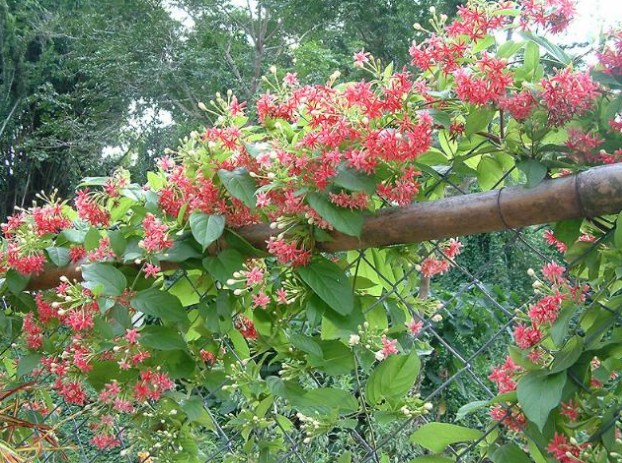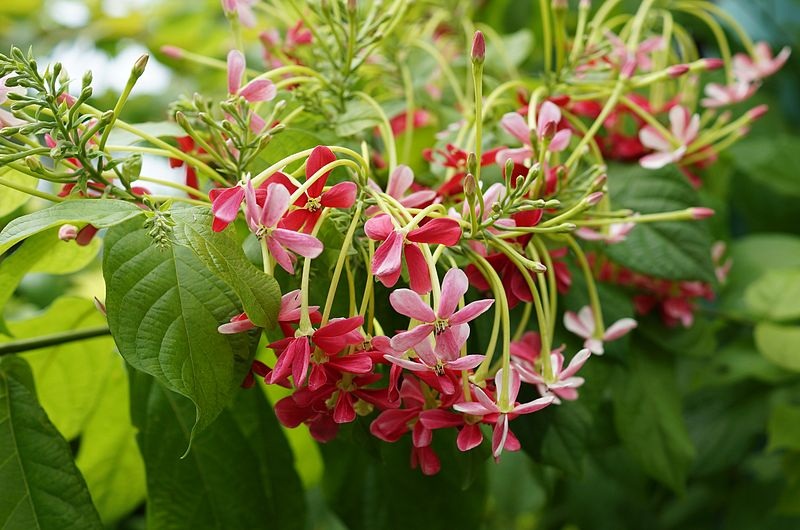[1] Barefoot Doctor's Manual- 1977 Prepared by the Revolutionary
Health Committee of Hunan Province. Original Chinese manual- Victor W. Sidel.
Originally published by Dr Joseph Quin and the Fogarty International centre, Bethdesda
(1974). Madrona Publishers Seattle Washington ISBN 0-914842-52-8
[2] A Complete English Dictionary of Medicinal Terms in Chinese Acupuncture and
Herbalism 1981- Henry Lu Chinese Foundations of Natural Health- The Academy of
Oriental Heritage, Vancouver, Canada.
Images
1.
chome.idv.tw:8080
Taiwan Encyclopedia
2.
old.tcmwiki.com
3.
en.wikipedia.org
by Pinus CC BY-SA 3.0
 Quisqualis indica,
Combretum indicum. 使
君 子 Shǐ
jūn zǐ Rangoon creeper fruit,
Chinese honeysuckle
Quisqualis indica,
Combretum indicum. 使
君 子 Shǐ
jūn zǐ Rangoon creeper fruit,
Chinese honeysuckle

